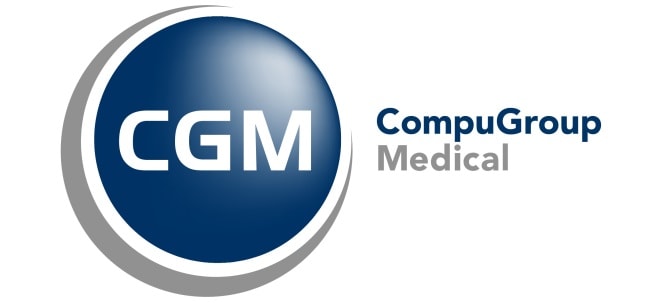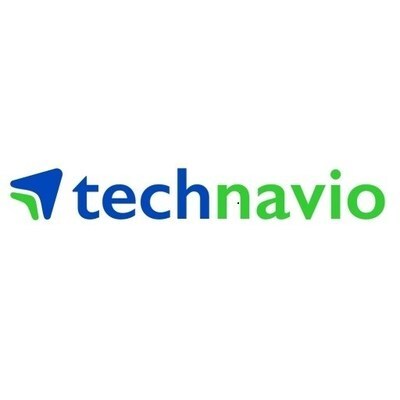Healthcare Logistics Market in Canada to Grow by USD 2.22 Billion (2025-2029), Legislative Changes Supporting Pharma Growth, Report on AI-Driven Market Evolution - Technavio
NEW YORK, Jan. 22, 2025 /PRNewswire/ -- Report on how AI is driving market transformation - The healthcare logistics market in canada size is estimated to grow by USD 2.22 billion from 2025-2029, according to Technavio. The market is estimated to grow at a CAGR of 9.1% during the forecast period. Legislative and regulatory changes supporting pharma growth is driving market growth, with a trend towards advent of pharma 4.0 and logistics 4.0. However, shortage of transportation drivers resulting in higher lead time poses a challenge. Key market players include Air Canada, AmerisourceBergen Corp., Andlauer Healthcare Group Inc., C H Robinson Worldwide Inc., Canada Post Corp., Canadian Healthcare Logistics, Cardinal Health, CEVA Logistics, DB Schenker, DHL Express Ltd., FedEx Corp., i2i fulfillment, Kuehne Nagel Management AG, Purolator Inc., Rogue Transportation Services Inc., Ryder System Inc., Skelton Truck Lines Inc., TFI International Inc., United Parcel Service Inc., and Williams Pharmalogistics.
AI-Powered Market Evolution Insights. Our comprehensive market report ready with the latest trends, growth opportunities, and strategic analysis- View Free Sample Report PDF
Healthcare Logistics Market Scope | |
Report Coverage | Details |
Forecast period | 2025-2029 |
Base Year | 2024 |
Historic Data | 2019 - 2022 |
Segment Covered | Type (Non-cold chain and Cold chain), Service (Transportation and Warehousing), Product (Pharmaceutical products and Medical devices), and Geography (North America) |
Region Covered | Canada |
Key companies profiled | Air Canada, AmerisourceBergen Corp., Andlauer Healthcare Group Inc., C H Robinson Worldwide Inc., Canada Post Corp., Canadian Healthcare Logistics, Cardinal Health, CEVA Logistics, DB Schenker, DHL Express Ltd., FedEx Corp., i2i fulfillment, Kuehne Nagel Management AG, Purolator Inc., Rogue Transportation Services Inc., Ryder System Inc., Skelton Truck Lines Inc., TFI International Inc., United Parcel Service Inc., and Williams Pharmalogistics |
The Canadian healthcare logistics market is experiencing significant trends in patient epidemiology, storage, and coordination of healthcare products. The aging population and increase in personalized medicine require efficient procurement, warehousing, and transportation solutions. Digitalization and globalization have led to the growth of e-commerce in healthcare, including online purchase, outsourcing operational logistics, and international commerce. The warehousing segment, including 3PL services, is crucial for managing overhead operating costs, ensuring availability, quality, and safety of pharmaceutical products, medical devices, and medical equipment. The pharmacies and healthcare facilities categories face expensive healthcare costs and rely on just-in-time resupplies of critical medical items like oxygen, platelets, and blood for time-bound deliveries. New technologies and raw materials production facilities are essential for meeting the demands of the healthcare system. The market is mutually dependent on various communities and cultures, requiring cross-border commerce and trade flow management. Temperature-controlled transportation methods, such as trucks and drones, are essential for transporting sensitive items like branded drugs, generic drugs, and medical devices. The second wave of the pandemic has highlighted the need for critical medical item availability and the importance of addressing healthcare disparities through investment in the sector.
The healthcare industry in Canada is embracing the digital transformation brought about by Industry 4.0. This technological revolution integrates emerging digital technologies and smart automation into business and production processes. Healthcare facilities are adopting sensors and the Industrial Internet of Things (IIoT) to monitor patients effectively and deliver real-time treatment. Advanced technologies such as 3D printing, additive manufacturing, artificial intelligence (AI), augmented reality, virtual reality, and big data analytics are driving this change. These innovations aim to create connected and smart systems, providing strategic and operational advantages for the healthcare sector.
Insights on how AI is driving innovation, efficiency, and market growth- Request Sample!
Market Challenges• The Canadian healthcare logistics market faces several challenges in patient epidemiology, storage, procurement, coordination, and inventory management of healthcare products, including pharmaceuticals, medical devices, and medical equipment. The aging population and increased demand for personalized medicine and health trackers necessitate efficient and cost-effective logistics solutions. Storage and temperature control are crucial for maintaining product quality and safety. Healthcare products require specialized handling and transportation, leading to increased costs and waste. The e-commerce sector's growth, international commerce, and digitalization require seamless coordination and digital transformation. Pharmaceutical products, such as branded and generic drugs, and medical devices, including medical equipment, face unique challenges due to expensive healthcare costs, cross-border commerce, and healthcare disparities. Raw materials' production and availability also impact the healthcare system's efficiency. The warehousing segment, including 3PL services, must manage overhead operating costs, while healthcare facilities and pharmacies require just-in-time resupplies of critical medical items like oxygen, platelets, and blood for time-bound deliveries. New technologies, such as drones, can improve delivery and freight forwarding, but also introduce challenges in packaging, order fulfillment, and selecting and packing. The second wave of the pandemic highlights the need for efficient healthcare transportation using modes like trucks, trains, boats, airplanes, and temperature-controlled trucks. Critical medical items, such as nephrological condition-related supplies, require special attention to availability, quality, and safety. The mutual dependence of communities and cultures necessitates effective cross-trade flow and investment pockets in areas like healthcare disparities reduction and sustainable logistics solutions.
• The healthcare logistics market in Canada relies heavily on third-party logistics providers for transporting medical devices and pharmaceuticals, particularly to remote rural areas. However, a significant shortage of skilled truck drivers poses a challenge to this sector. With approximately 20,000 vacant truck driver positions in 2021, according to Trucking HR Canada and the Canadian Trucking Alliance, this deficit is projected to worsen, potentially disrupting supply chains and increasing pressure. In the pharmaceutical industry, where timely delivery is crucial for saving lives, this shortage can lead to delays in planned expansions by trucking operators. Consequently, addressing the driver shortage is essential to maintain an efficient and effective healthcare logistics system in Canada.
Insights into how AI is reshaping industries and driving growth- Download a Sample Report
Segment OverviewThis healthcare logistics market in Canada report extensively covers market segmentation by
- 1.1 Non-cold chain
- 1.2 Cold chain
- 2.1 Transportation
- 2.2 Warehousing
- 3.1 Pharmaceutical products
- 3.2 Medical devices
- 4.1 North America
1.1 Non-cold chain- The non-cold chain segment dominated the healthcare logistics market in Canada in 2024, accounting for the largest market share. This segment caters to the transportation and warehousing of medical devices and generic pharmaceutical products, which do not necessitate complex care. The pharmaceutical industry primarily supplies non-cold chain products and services directly to hospitals, clinics, retail drugstore chains, and medical supplies wholesalers. The increasing demand for pharmaceutical products in Canada and the expansion of healthcare infrastructure are expected to boost the healthcare logistics market during the forecast period. Additionally, the affordability of non-cold chain logistics solutions is another significant factor fueling the growth of this segment within the market.
Download complimentary Sample Report to gain insights into AI's impact on market dynamics, emerging trends, and future opportunities- including forecast (2025-2029) and historic data (2019 - 2022)
Research AnalysisThe Healthcare Logistics Market in Canada is a critical sector that ensures the timely and efficient delivery of essential healthcare products to various healthcare facilities and patients. Patient epidemiology plays a significant role in determining the demand for healthcare products and logistics services. The market includes storage solutions for healthcare products, international commerce, e-commerce, and online purchase options. Outsourcing operational logistics, delivery, freight forwarding, packaging, and order fulfillment are key services offered in this market. The healthcare system relies heavily on transportation modes like trucks, trains, boats, airplanes, temperature-controlled trucks, cars, and even second wave delivery services to ensure the safe and timely delivery of temperature-sensitive medical supplies. The mode of transportation chosen depends on the nature and urgency of the healthcare products.
Market Research OverviewThe Healthcare Logistics Market in Canada is a critical sector that ensures the timely and efficient delivery of healthcare products, including pharmaceuticals, medical devices, and medical equipment, to various healthcare facilities and pharmacies. Patient epidemiology plays a significant role in determining the demand for these products. Storage, coordination, procurement, warehousing, transportation, inventory management, and availability are key aspects of healthcare logistics. Quality, safety, costs, waste, and digitalization are essential considerations to maintain the integrity and affordability of healthcare products. The e-commerce sector and international commerce are transforming healthcare logistics through online purchases, outsourcing operational logistics, and freight forwarding. The aging population, personalized medicine, and increased affordability of generic drugs are driving demand in the pharmaceutical products segment. Medical devices and medical equipment categories are also growing due to advancements in technology and healthcare facilities' expanding needs. Raw materials production, factory, and medical facilities are crucial elements of the healthcare system, requiring efficient healthcare transportation and various modes, such as trucks, trains, boats, airplanes, temperature-controlled trucks, and even drones for time-bound deliveries of critical medical items like oxygen, platelets, and blood. The second wave of the pandemic and nephrological conditions require just-in-time resupplies. Healthcare disparities and investment pockets are areas of focus for future growth.
Table of Contents:1 Executive Summary
2 Market Landscape
3 Market Sizing
4 Historic Market Size
5 Five Forces Analysis
6 Market Segmentation
- Type
- Non-cold Chain
- Cold Chain
- Service
- Transportation
- Warehousing
- Product
- Pharmaceutical Products
- Medical Devices
- Geography
- North America
7 Customer Landscape
8 Geographic Landscape
9 Drivers, Challenges, and Trends
10 Company Landscape
11 Company Analysis
12 Appendix
Technavio is a leading global technology research and advisory company. Their research and analysis focuses on emerging market trends and provides actionable insights to help businesses identify market opportunities and develop effective strategies to optimize their market positions.
With over 500 specialized analysts, Technavio's report library consists of more than 17,000 reports and counting, covering 800 technologies, spanning across 50 countries. Their client base consists of enterprises of all sizes, including more than 100 Fortune 500 companies. This growing client base relies on Technavio's comprehensive coverage, extensive research, and actionable market insights to identify opportunities in existing and potential markets and assess their competitive positions within changing market scenarios.
ContactsTechnavio Research
Jesse Maida
Media & Marketing Executive
US: +1 844 364 1100
UK: +44 203 893 3200
Email: media@technavio.com
Website: www.technavio.com/
![]() View original content to download multimedia:https://www.prnewswire.com/news-releases/healthcare-logistics-market-in-canada-to-grow-by-usd-2-22-billion-2025-2029-legislative-changes-supporting-pharma-growth-report-on-ai-driven-market-evolution---technavio-302355912.html
View original content to download multimedia:https://www.prnewswire.com/news-releases/healthcare-logistics-market-in-canada-to-grow-by-usd-2-22-billion-2025-2029-legislative-changes-supporting-pharma-growth-report-on-ai-driven-market-evolution---technavio-302355912.html
SOURCE Technavio



